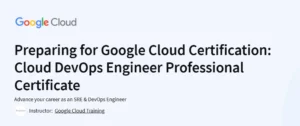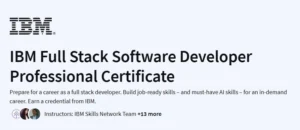What will you learn in Object-Oriented Programming in Python Course
Understand core object-oriented principles in Python: classes, objects, inheritance, polymorphism, and encapsulation
Design and implement robust Python classes with constructors, magic methods, and property decorators
Apply design patterns such as Factory, Singleton, Strategy, and Observer in Python projects
Use composition and aggregation to build complex, maintainable systems
Write unit tests for OOP code and leverage ABCs (abstract base classes) for interface design
Program Overview
Module 1: OOP Fundamentals in Python
⏳ 1 week
Topics: Defining classes, creating objects,
__init__, and instance vs. class attributesHands-on: Build a
BankAccountclass with deposit/withdraw methods and property validation
Module 2: Inheritance & Polymorphism
⏳ 1 week
Topics: Single vs. multiple inheritance, method overriding,
super()usageHands-on: Create a class hierarchy for
Vehicle → Car, Truckdemonstrating polymorphicstart_engine()
Module 3: Encapsulation & Magic Methods
⏳ 1 week
Topics: Private/protected attributes, getters/setters with
@property, special methods (__str__,__eq__)Hands-on: Implement a
Vectorclass supporting addition, equality checks, and string representation
Module 4: Composition & Aggregation
⏳ 1 week
Topics: “Has-a” relationships, delegating behavior vs. inheritance
Hands-on: Model a
Libraryclass that containsBookobjects and supports search and checkout operations
Module 5: Design Patterns in Python
⏳ 1 week
Topics: Factory, Singleton, Strategy, and Observer patterns in Pythonic style
Hands-on: Implement a logging system using the Singleton pattern and a payment processor with Strategy
Module 6: Abstract Base Classes & Interfaces
⏳ 1 week
Topics:
abcmodule, defining abstract methods, ensuring interface complianceHands-on: Define an
ExporterABC and createCSVExporterandJSONExporterimplementations
Module 7: Testing & Best Practices
⏳ 1 week
Topics:
unittestfor OOP code, mocking, test fixtures, SOLID principlesHands-on: Write unit tests for previously built classes, enforce single-responsibility
Module 8: Capstone Project
⏳ 1 week
Topics: End-to-end OOP application design, code reviews, refactoring
Hands-on: Build a simple inventory management system with products, orders, and user roles, applying all learned concepts
Get certificate
Job Outlook
OOP proficiency in Python is essential for backend development, software engineering, and automation roles
Common positions: Python Developer, Backend Engineer, Automation Engineer
Salaries range from $75,000 to $130,000+ depending on experience and location
Strong demand in web services, fintech, data engineering, and DevOps
Specification: Object-Oriented Programming in Python Course
|
FAQs
- Prior basic Python knowledge is recommended to follow examples.
- Course covers foundational OOP concepts from scratch.
- Hands-on labs guide learners through building classes, methods, and objects.
- Focuses on practical application of OOP rather than theory-heavy explanations.
- Beginners can supplement with Python tutorials if needed before starting.
- Covers Factory, Singleton, Strategy, and Observer design patterns.
- Emphasizes composition and aggregation for building complex systems.
- Includes testing with
unittestand ABCs for interface compliance. - Capstone project simulates a real inventory management application.
- Prepares learners for backend development, automation, and software engineering roles.
- Focuses on SOLID principles for maintainable code.
- Teaches
@propertydecorators and magic methods (__str__,__eq__). - Hands-on exercises reinforce reusable class design.
- Includes unit testing for code validation and reliability.
- Prepares learners for collaborative coding and code reviews.
- Teaches
abcmodule usage for abstract classes. - Covers interface enforcement and multiple implementations.
- Hands-on exercises with CSVExporter and JSONExporter implementations.
- Emphasizes designing flexible and extensible class hierarchies.
- Prepares learners to implement real-world Python application architectures.
- Dedicate 4–6 hours weekly to complete modules and exercises.
- Focus on one topic or module per session for clarity.
- Incrementally complete hands-on labs and the capstone project.
- Document design patterns, class relationships, and test cases.
- Review and refactor previous exercises to reinforce learning.





